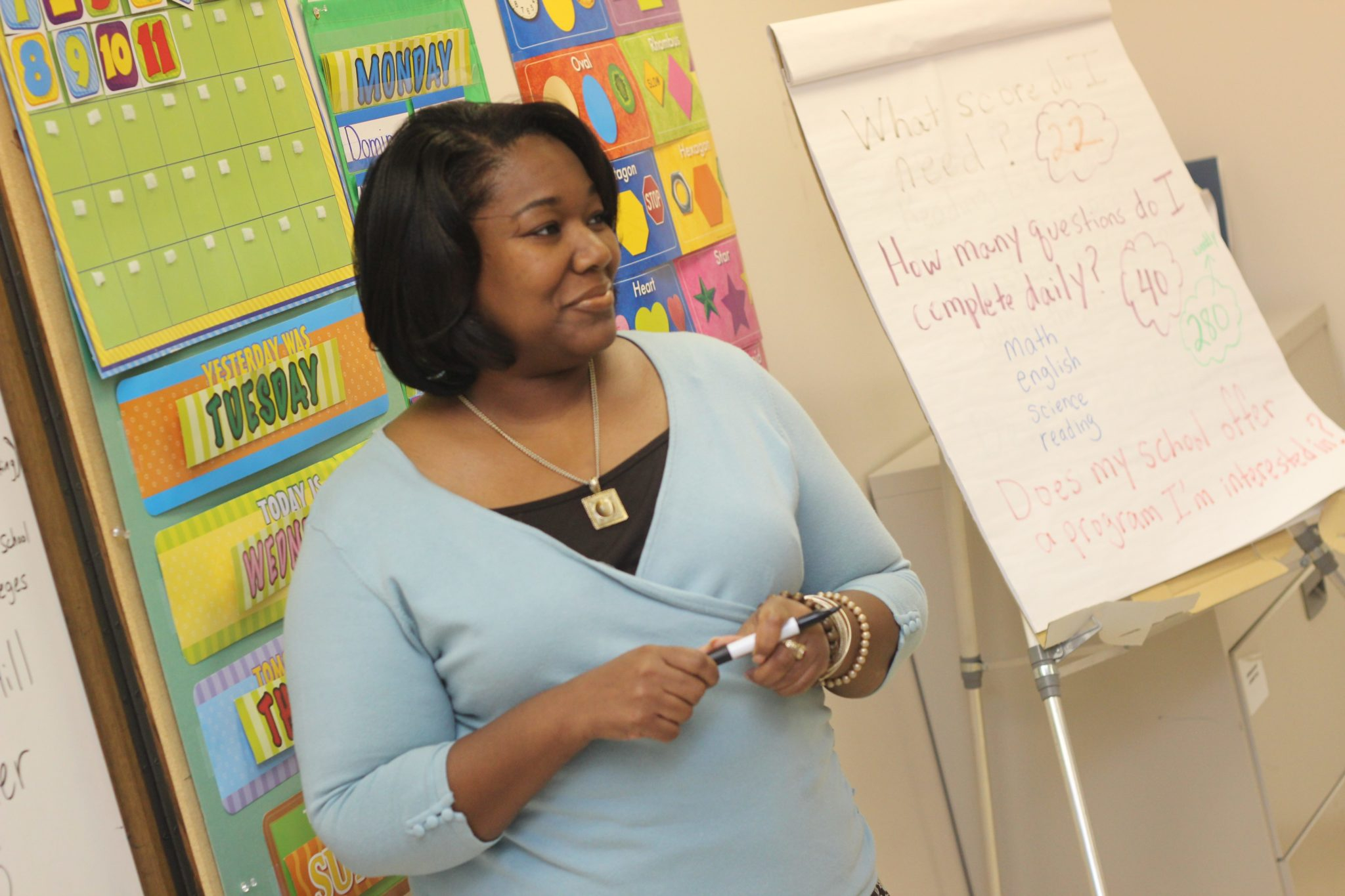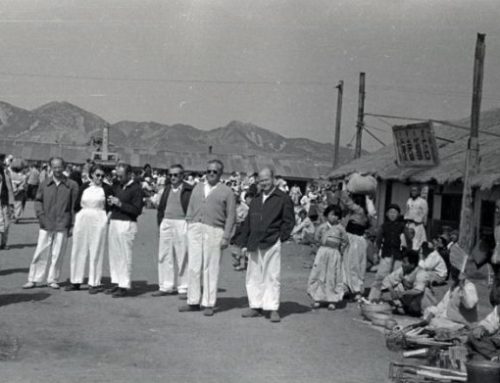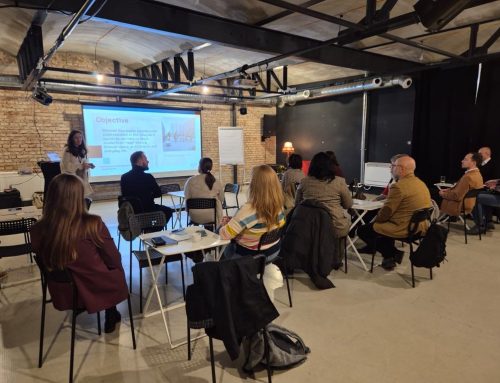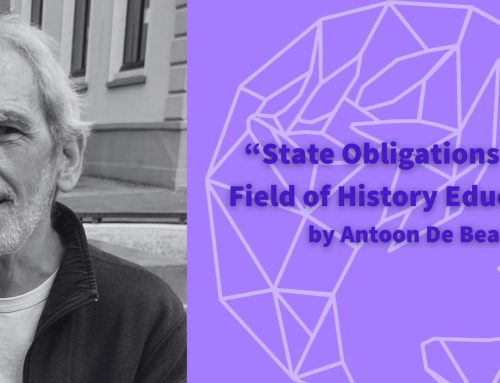On Monday 1 July 2019, EuroClio convened a meeting for experts in the field of history education to discuss the role of high-quality history education in conflict prevention and resolution. During the meeting, Eyal Naveh presented the Israeli-Palestinian conflict in history education, which centered on the inclusion of the Nakba and Holocaust in the countries’ curricula. During his informative presentation, Naveh touched upon Im Tirtzu, a right-wing, non-profit organisation in Israeli that has launched a web platform where students can report their teachers for promoting ‘anti-Israel’ views. Entitled ‘Know Your Professor’, the project asks students to report teachers who “teach at publicly funded universities yet promote BDS [Boycott, Divestment and Sanctions], encourage international pressure on Israel, accuse the IDF [Israeli Defense Forces] of war crimes, and call to refuse service in the IDF,” with the claim that such behaviour is an inappropriate use of tax-payer dollars.
Initially, some in attendance were surprised to hear about such tactics. However, upon further discussion, the experts were able to conjure many other examples and it became readily apparent that Im Tirtzu’s actions are not unique; rather, they are part of a broader pattern of increasing calls for student to surveil their teachers. This sparked a greater conversation about the concept of ‘safe schools’ and what the term should be understood to encompass. It became clear that the safety of teachers, both professionally and physically, is an integral consideration for history education reforms.
Teachers are the most important link between students and content, through whom textbooks, curricula, and government initiatives are filtered. Even if teachers are provided with unbiased, inclusive content, if they feel uncomfortable or unsafe teaching it, the success of history education reform can be greatly compromised. The encouragement of students to report or otherwise publicly denounce teachers who teach controversial subjects can lead to an inability of teachers to educate in a way that highlights multiple perspectives or interpretations of the past. If teachers believe their careers or reputations are vulnerable, they may choose not to teach controversial subjects or otherwise censor themselves. It can stifle debate and critical thinking skills. In short, the unsafe teacher is a choke point that threatens the success of even the most well-thought out reforms. This makes the prevalence of the surveillance all the more concerning.
Take, for instance, the Alternative for Deutschland (AfD), which called for students to report teachers for violations of neutrality laws. Here, a political party that denies or questions the extent of the Holocaust is asking for students to report teachers who question or speak ill of the party. Analogous tactics are being employed in the Netherlands, where the Forum voor Democratie (FvD) is similarly politicising the education system. Over 1,500 Dutch educators have signed an open letter against the education policies of the FvD, specifically claiming that the reporting hotline—touted by FvD as a way to reduce bias in the classroom—is simply an attempt to coerce educators into teaching the party’s brand of history.
In addition to political parties, interest groups sometimes lead the charge: one notable example of this is the Professor Watchlist, in the United States. The site was created by Turning Point USA, a conservative non-profit organisation. While the website claims to only publish those teachers whose alleged offenses are corroborated by pre-existing news sources with credible reporting, the sources listed are often extremely partisan. Campus Reform, a self-described conservative watchdog publication, is often the sole publication cited. Professor Watchlist is a particularly alarming iteration of this dangerous practice as it publishes images of the educators, as well as their workplace, potentially threatening their physical security. This website also illustrates how easily the practice can backslide from the ostensible goal of preventing bias in the classroom to ensuring bias in the classroom through the censure of certain views and the restriction academic freedoms.
Consider the following example. Patricia Williams made the watchlist for claiming that the history of the right to bear arms was based in racial and gender privileges. The website linked to Williams’ opinion piece, where she discusses her interpretation of this history. As proof of her bias, the website also links a report on gun ownership by the Pew Research Center, a legitimising move that attempts to align the think tank with the website’s view despite the irrelevance of the report to the article’s argument. Williams’ opinion piece does not explicitly renounce an ideology, but rather asserts a perspective. The website’s publishing of Williams and other teachers harms the promotion of multiperspectivity in classroom by disparaging their views and, as a result, attempting to harm the credibility of the educators. William’s claim uses concrete evidence to advance a point with which the website does not agree; she is not denounced for being a poor academic, but rather for being a ‘wrong’ one. While this particular website is not influential or salient in United States, a similar website in Brazil shows what can happen when the websites gain traction in the community or government.
Escola sem Partido, or Schools without Party, is a right-wing movement calling for the end to the politicisation of schools in Brazil. The movement gained popularity through government support, with President Bolsonaro endorsing the movement. Personally encouraging students to film teachers who criticise his rule or agenda, he went so far as to share a video of a teacher ‘indoctrinating’ students against his regime. Having received the consent of the ruling party, this movement can pose significant risks to the teachers and schools that are denounced by it. In part as a response to claims of partiality for the left, the Brazilian government proposed extensive budget cuts to three large publicly funded universities who were reported to have engaged in such anti-government behaviour, providing monetary disincentive to contradict the ruling party’s views, including those on history. The current situation has been satirised in a comedy video, which, although facetious, illustrates the pressure on educators, in particular history educators, in Brazil.
While most of the examples of politicians or interest groups encouraging students or providing platforms for students to report on their teachers are less severe than that of Brazil, the case illustrates the detrimental affect such an environment can have on the quality of education, and how it can threaten even the most well-thought out history education reforms. Teachers cannot employ the strategies integral to high-quality history education if they feel threatened by the state or fear professional retaliation. It is incredibly important that schools are safe for students to debate freely; it is of equal importance to recognise that teacher’s safety is key to effective reform, and decision makers would do well to remember and consider the aforementioned examples.
Written By Madison Pagel, IHJR Research trainee.













